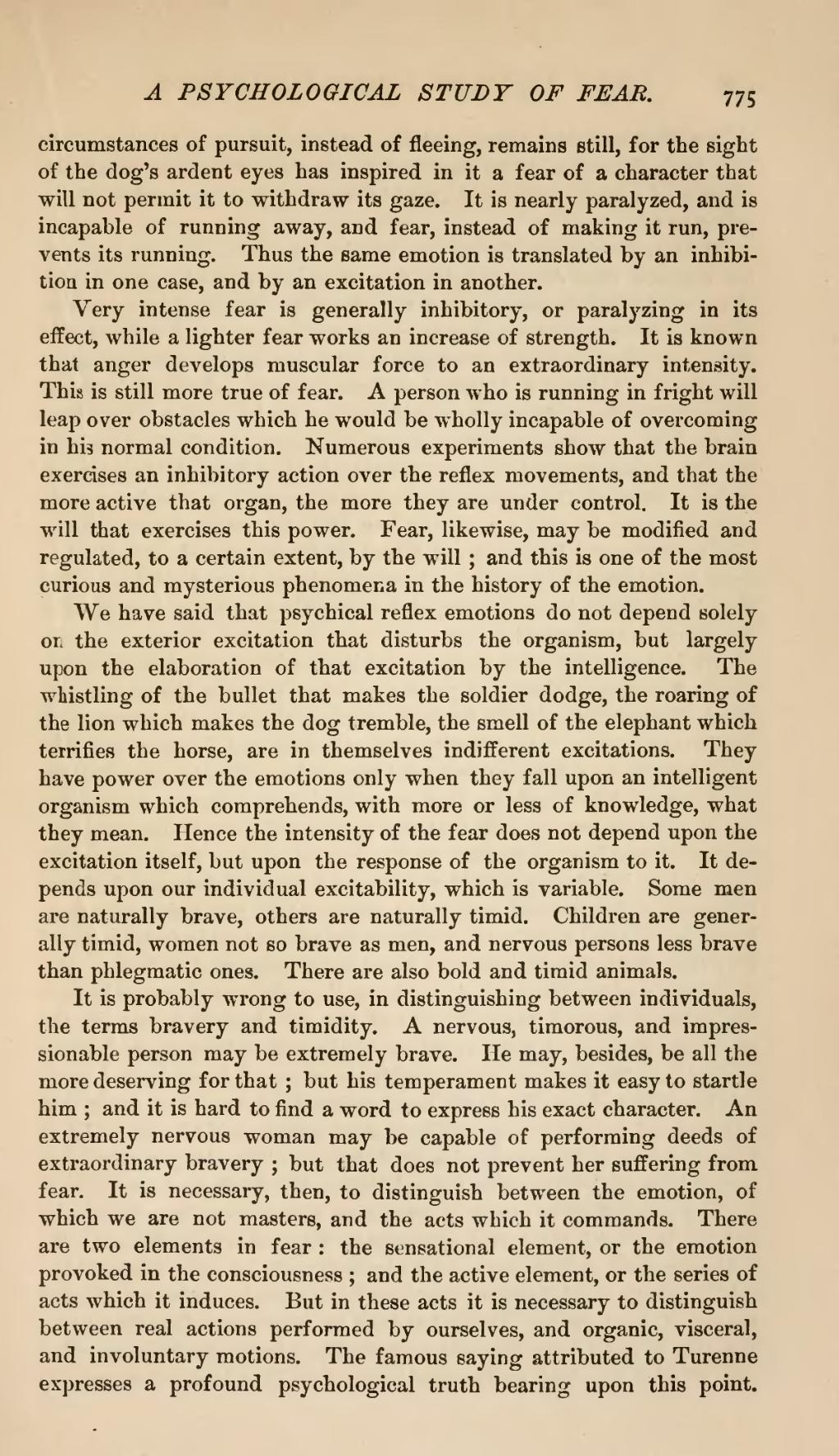circumstances of pursuit, instead of fleeing, remains still, for the sight of the dog's ardent eyes has inspired in it a fear of a character that will not permit it to withdraw its gaze. It is nearly paralyzed, and is incapable of running away, and fear, instead of making it run, prevents its running. Thus the same emotion is translated by an inhibition in one case, and by an excitation in another.
Very intense fear is generally inhibitory, or paralyzing in its effect, while a lighter fear works an increase of strength. It is known that anger develops muscular force to an extraordinary intensity. This is still more true of fear. A person who is running in fright will leap over obstacles which he would be wholly incapable of overcoming in his normal condition. Numerous experiments show that the brain exercises an inhibitory action over the reflex movements, and that the more active that organ, the more they are under control. It is the will that exercises this power. Fear, likewise, may be modified and regulated, to a certain extent, by the will; and this is one of the most curious and mysterious phenomena in the history of the emotion.
We have said that psychical reflex emotions do not depend solely on the exterior excitation that disturbs the organism, but largely upon the elaboration of that excitation by the intelligence. The whistling of the bullet that makes the soldier dodge, the roaring of the lion which makes the dog tremble, the smell of the elephant which terrifies the horse, are in themselves indifferent excitations. They have power over the emotions only when they fall upon an intelligent organism which comprehends, with more or less of knowledge, what they mean. Hence the intensity of the fear does not depend upon the excitation itself, but upon the response of the organism to it. It depends upon our individual excitability, which is variable. Some men are naturally brave, others are naturally timid. Children are generally timid, women not so brave as men, and nervous persons less brave than phlegmatic ones. There are also bold and timid animals.
It is probably wrong to use, in distinguishing between individuals, the terms bravery and timidity. A nervous, timorous, and impressionable person may be extremely brave. He may, besides, be all the more deserving for that; but his temperament makes it easy to startle him; and it is hard to find a word to express his exact character. An extremely nervous woman may be capable of performing deeds of extraordinary bravery; but that does not prevent her suffering from fear. It is necessary, then, to distinguish between the emotion, of which we are not masters, and the acts which it commands. There are two elements in fear: the sensational element, or the emotion provoked in the consciousness; and the active element, or the series of acts which it induces. But in these acts it is necessary to distinguish between real actions performed by ourselves, and organic, visceral, and involuntary motions. The famous saying attributed to Turenne expresses a profound psychological truth bearing upon this point.

